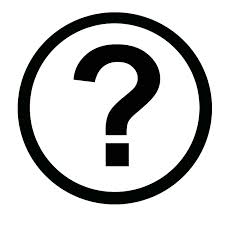With the end of QE I figured it might be time for another Q&A. Feel free to use the comments to ask me whatever is on your mind. I am proficient in misunderstanding the effects QE, the monetary system, the financial world, relationships, love, sports as well as most other things. So please let me know how I can further muddy your understanding of the world. You’re welcome in advance.
Mr. Roche is the Founder and Chief Investment Officer of Discipline Funds.Discipline Funds is a low fee financial advisory firm with a focus on helping people be more disciplined with their finances.
He is also the author of Pragmatic Capitalism: What Every Investor Needs to Understand About Money and Finance, Understanding the Modern Monetary System and Understanding Modern Portfolio Construction.


Frederick
Do you think the stock market will have a more difficult time in the future now that the psychological “put” from QE is gone?
Ryan
What do you wish you knew, that you know now, when you were first starting out after college?
Vitalio
While it’s understood that QE can be seen as a swap of Treasuries for Reserves I would like to know who benefits from such a swap? Why banks would want to swap a interest bearing asset for a non interest bearing asset? I mean if loans are demand driven and demand is depressed what is the point to sell something interes bearing? Bref : where did money (or currency ???) go ?
?
blonderealist
Most of us that have been reading Pragcap and your research papers for a while understand that banks don’t lend reserves.
How about deposits? Let’s pretend a new bank opens, but has no depositors. Can it make loans?
Also, banks certainly compete for depositors and it seems obvious that they hope those new customers pay the bank service fees, and become credit worthy borrowers. Apart from that, does the bank benefit from gathering more deposits from customers that don’t borrow money and pay minimal fees? I think a lot of people assume that banks want new deposits so that banks can do more loans.
Matthew McOsker
Follow the money, banks, pensions, bond funds, foreign banks/foreign central banks. Those are the largest holders of treasuries, and many mortgage securities. There are reasons why a bank might hold the shorter term asset, or they may just roll over the proceeds to a newly issued bond. Foreign banks are holding around 50% of the reserves. No surprise that these might represent large trading partners China, Germany, and Japan. They will just hold the dollars or treasuries.
https://blogs.wsj.com/economics/2013/02/04/foreign-banks-hold-most-excess-reserves-report-contends/
pliu412
Cullen,
Could you explain the operational differences between FED QEs and Repo?
Can Fed repo facility be used as “underground” QE mechanism? It seems that FED can use both methods to add liquidity to the economy.
Thanks.
Charles DuBois
Cullen Being sovereign in your own currency is critically important, as you have explained. In trying to understand emerging markets, I admit my ignorance and I’m not sure which countries are sovereign and which are not. I do know China and Brazil are sovereign. Are there any major emerging economies which lack monetary sovereignty and therefore could potentially be more vulnerable to economic weakness and other problems (such as is the case with Europe currently).? Thanks.
Guest
How do you respond to this chart?
cre80ve.com
How do you respond to this chart showing an almost exact correlation between Fed Balance sheet and S&P 500
Bernard Super
Is there any circumstance where the FED can create dollars without a matching asset such as Treasury notes or bonds?
Paul Blaha
How does trade and foreign capital flows affect the domestic money supply? For example, if a foreign investor decides to buy a US government bond, what is the effect on M2 and how does the interaction with the Fed and Banks work?
Lou
“Of course, QE isn’t really ending. The Fed is still reinvesting principal proceeds”
Can you elaborate on what you mean by this?
Shervin
I’ll answer this. People did the same thing with the gold chart and the Fed balance sheet until it didn’t work. Point is correlation does not imply causation.
Gabriel Syme
What do you make of the Positive Money movement? Seems Martin Wolf’s a fan, and possibly Izzy Kaminska (https://ftalphaville.ft.com/2014/10/31/2025592/why-banking-got-out-of-control-in-the-digital-age/). Sharp observers. Would this be a good thing? Seems to me that growth in corporate investment would be hitched to state money-growth mandates. Do I have that right? Would that arrangement be preferable to private credit-money? Thanks!
cre80ve.com
1. What are some of the books you’ve been reading lately? I read your book, and it is by and far the best economics / finance / investing book I’ve read…
2. Are you ever going to get back to the paid mailing list? It was an invaluable resource for so many of us, esp. now that you’ve stopped making market calls on pragcap.com.
3. Where are you putting new money to work in the current market?
4. iPhone 6 plus envy? After being a long time Android user, I’m switching over. What are your thoughts?
Geoff
My guess is that, in theory, a bank could indeed make loans without deposits as long as it has enough capital. Banks are capital constrained, not deposit constrained. A bank could theoretically operate with 100% capital and no debt, or a bank could issue debt other than deposits, like a bond. However, technically, I believe a bank must be a “deposit taking institution” to qualify as a bank.
Regarding your second question, why do banks want new deposits? Mainly because they are a cheap form of debt. How much interest does the bank pay you on your bank account?
pliu412
Different scales are used between the right side and left side.
For an apple-to-apple comparison, a ratio chart is used to show there is no correlation of these two things.